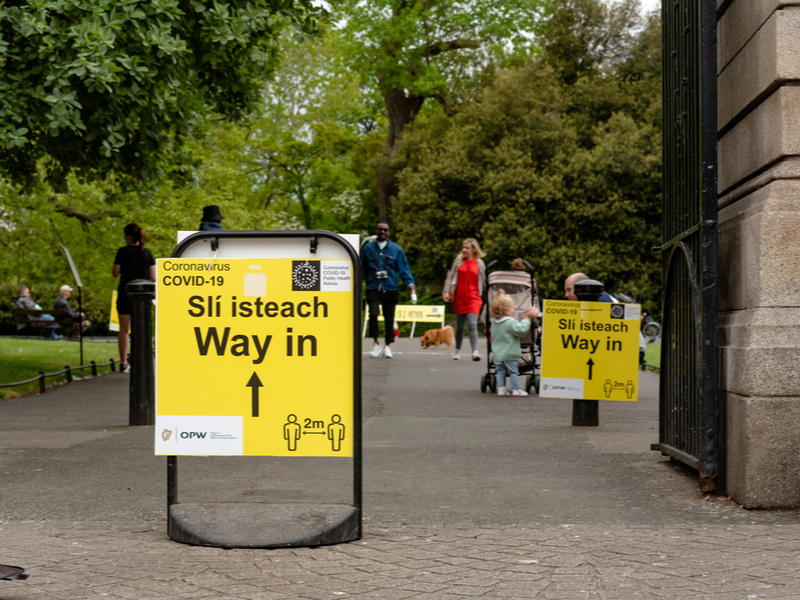Nick McGowan from Lion Life Insurance looks at the importance of income protection for the self-employed during these challenging times.
While being self-employed has many perks, it can occasionally be a nightmare. Like having to do your taxes or even worse, when something catastrophic happens that you hadn’t planned for.
And sure, when you were deciding to set up your business, you considered the things that could be a challenge. Work/life balance. Financial management. Marketing. Cashflow. You may even have considered random acts of god or nature: floods, storms, whatever.
“No doubt, you’re considering your options and asking yourself what happens if you were to catch coronavirus or if you needed to take an extended leave from work”
You probably hadn’t considered a global pandemic. The last massive pandemic, after all, was the Spanish Flu and most of us probably didn’t know a whole lot about that until Covid-19 took off.
And now here we are knee-deep in quarantine with upwards of a hundred emails in our inboxes from every brand ever about how we’re in unprecedented times. Yadda yadda something something about a new normal.
You’ve heard it all. And that’s not to play it down: Covid-19 is scary. Businesses have closed for quarantine that may never open their doors again. The vulnerable have been cocooning, and several hundred thousand people around the world have died.
It’s no wonder if you feel a bit shaken. Whispers of a recession and austerity are already on the way. No doubt, you’re considering your options and asking yourself what happens if you were to catch coronavirus or if you needed to take an extended leave from work.
Income Protection during Covid-19
Most major Irish insurers are playing their part with Covid-19 payment breaks or ‘premium deferrals’ and our government has reacted quickly to the public health crisis, offering several schemes to help employees and employers during the pandemic.
The three big ones are the Temporary Covid-19 Wage Subsidy, the Pandemic Unemployment Payment, and the Covid-19 Illness Benefit.
However, these are short-term initiatives that cap out at a max of €350/€410, depending on terms and conditions. None of them intends to cover a long-term illness or injury that might leave you out of work for a long period.
Income Protection, then, should be a significant consideration for the self-employed. If you already have Income Protection, fair play for getting your house in order. If you don’t know what Income Protection is, or if you do know and you never quite got around to it, let’s talk about it.
What it comes down to is this: if you’re out sick, no one is going to swoop in and save the day for you. Running a business is hard enough already, and I’m sure you’ve gone to work with all manner of illnesses because you couldn’t afford to take time off.
But what happens if you were to get injured or hit with a long-term illness?
The Covid-19 Illness Benefit will likely cover you if you get up close and personal with the pandemic. But, for all other conditions, you’ll find yourself in trouble quickly.
Income Protection is a type of insurance that pays you a replacement income of up to 75 per cent of your gross income. If you get sick for any reason, the insurer will keep paying you as you take time out to recuperate.
For the self-employed, this could prove a lifeline. While the Covid-19 Illness Benefit is €350,
It’s probably quite a step down from your wage. If you’re unfortunate enough to be shouldering a Dublin-sized rent, that may not even be enough to pay for your premises.
And remember, self-employed people don’t get any illness benefit if they can’t work.
Which is why Income Protection is so important – because, otherwise, you’re on your own!
What else do you need to know about Income Protection?
You don’t have all day to read my chattering so let’s keep it short and sweet and cut to the chase:
- Income Protection has a deferred period = how long you need to be out of work before you can make a claim. Deferred periods run at four, eight, 13, 26, and 52 weeks. The shorter the deferred period, the more expensive your cover will be. For example, buying a policy with a four-week deferred period means your payment will kick in after four weeks, but that you’ll pay more for your premium.
- It’s harder to get cover if you don’t have perfect health. However, it isn’t impossible; it depends on the severity of your illness. If it’s a mild issue, you’re likely fine, but the insurer may exclude your pre-existing condition as a reason to claim. If it’s a severe health issue, getting cover will cost more, or the insurer may decline to offer you cover. If you have a recently diagnosed condition, the insurer might ask to try again down the line, for example, after your treatment has had time to kick in.
- The job you do is a major factor. If you’re a bomb detonator or a spy or a bull runner, you’ll find that you can’t get insurance – for apparent reasons. If the insurer sees you as higher risk (any sort of manual work), you’ll find that getting Income Protection can be tricky. However, that’s when specialist cover such as Wage Protector can come in really handy.
- You can claim up to 40 per cent tax relief on your premiums, so that’s a big plus point for the price.
Those are all the big things. If you can’t afford to be out sick for any length of time, then you can’t afford NOT to have any Income Protection.
Your income determines your entire life, so let that one percolate for a bit before we look at an example of how much cover might cost.
But first:
How is Income Protection affected by coronavirus?
Short answer: not massively.
It comes down to the deferred period in most cases. Let’s say your deferred period is eight weeks and you get coronavirus. You’re okay to return to work after four weeks. No Income Protection for you, though you could claim the Covid-19 Illness Benefit for the time you were out sick. However, if you were out for longer than eight weeks (i.e. the deferred period), it could be a valid claim.
By the way, if you have symptoms or have a diagnosis of Covid-19, you’ll have to wait until you recover before you can get Income Protection. The current guidelines direct the insurer to postpone offering cover for one-month post-recovery.
So how much does Income Protection cost?
I can’t outright give you a figure. Everyone is different, so every case will be considered differently. However, we can look at an example to provide you with a rough idea.
A warning: math’s are coming, but we’ll keep it simple.
Paul is a 40-year-old self-employed IT consultant earning €100,000 a year. He wants 75 per cent cover – that’s €6,250 a month. Unfortunately, Paul is involved in a car accident and can’t work for four years. His deferred period is 13 weeks. Until Paul gets back, he will receive €6,250 a month from the insurer.
That’s a payout of around €280,000 over four years.
So what might that cost, in real terms?
If he pays his premium from after-tax income, Paul is looking at €200 per month, or €120 after claiming back tax relief. However, as Paul is a company director, the company can pay the premiums and claims corporation tax relief. There is no BIK for Paul.
For around €120 a month, Paul is making his income bulletproof.
Let’s look at another example. Sarah is 35 and is a self-employed marketing consultant operating as a sole trader. Sarah’s net profit is €40,000 a year, and she wants to insure the full wedge of 75 per cent of her income. She chooses a deferred period of 8 weeks. Her quote is just €80 per month (€48 after tax relief).
A global pandemic is, to quote all those marketing emails, unprecedented. It’s also very much out of our control. We can make plans, and we can safeguard as best we know-how, but no one knows what is going to happen next. Instead, all any of us can do is sit tight, plan for the next month or so, and see how it unfolds.
Now is as good a time as ever to consider Income Protection. It has the potential to be a lifesaver for you and your business.
If you’d like to discuss how best to weather the current storm and to suit your own unique needs, please feel free to get in touch with me directly on nick@lion.ie or get a free income protection insurance quote online to compare your options.
Written by Nick McGowan (nick@lion.ie)
Published: 25 May, 2020







